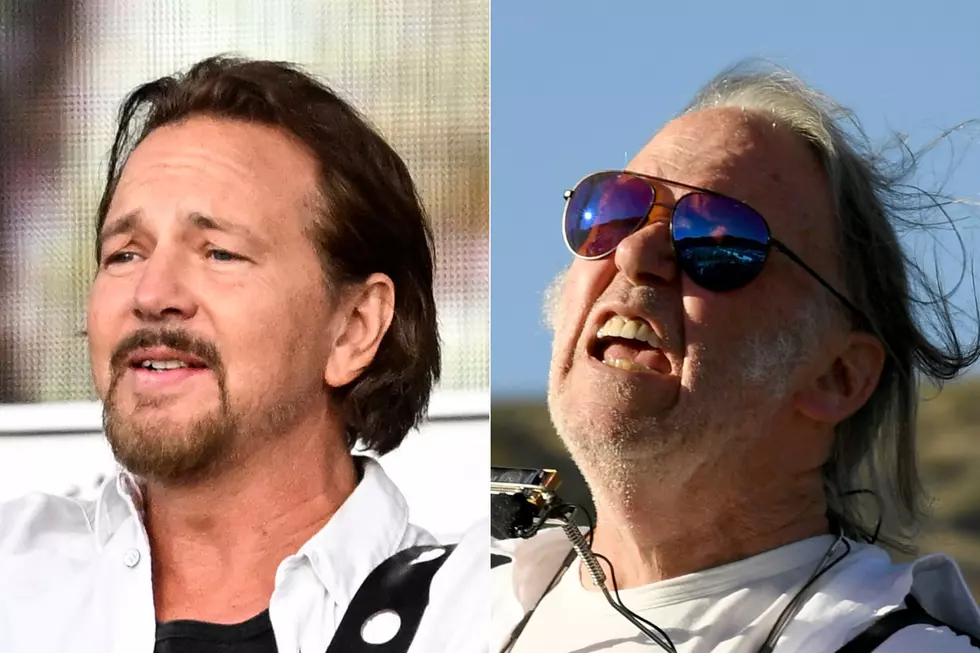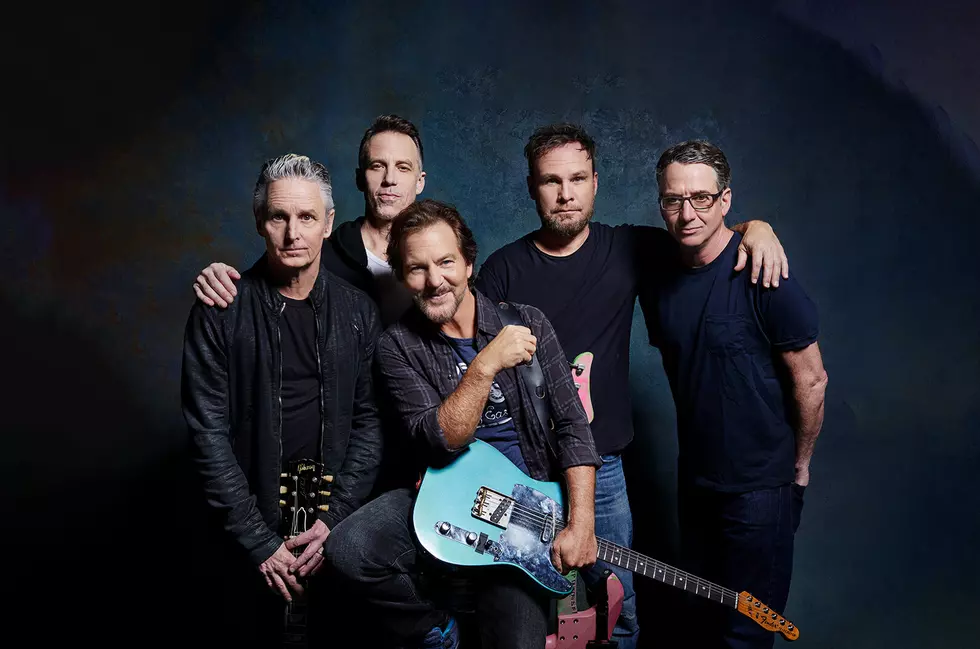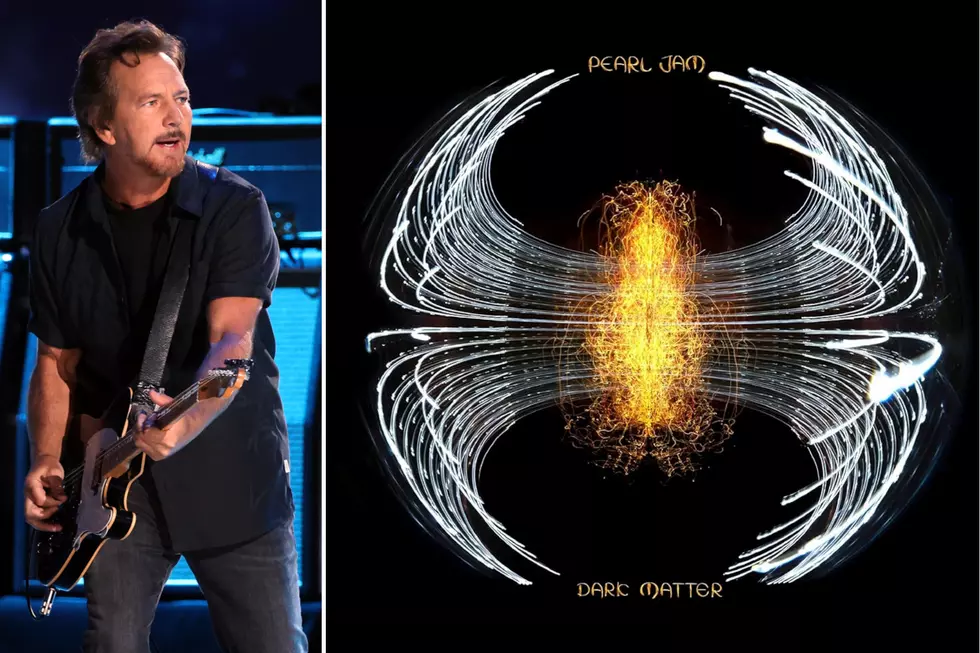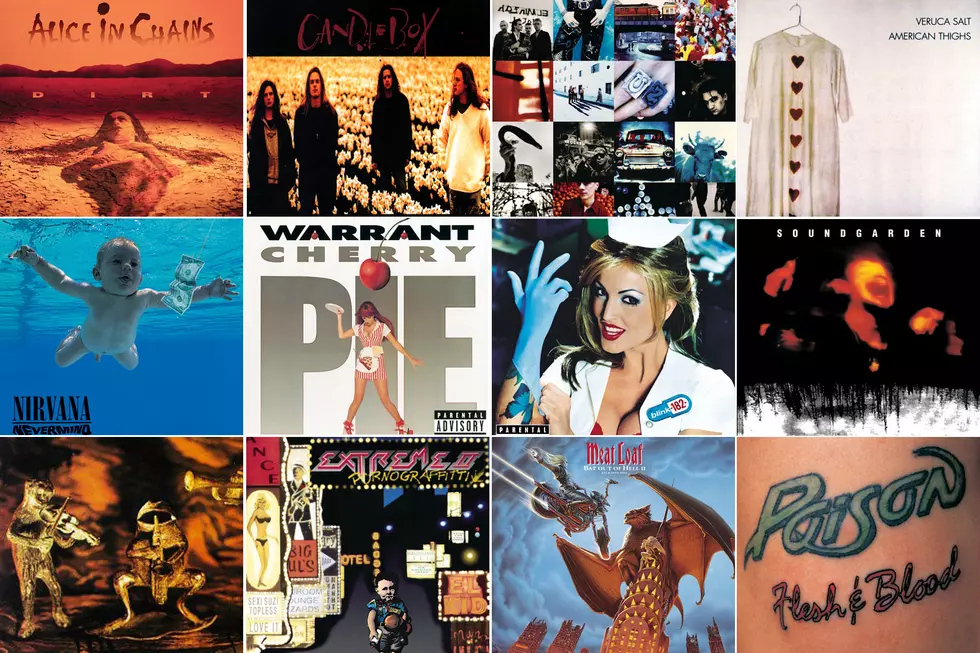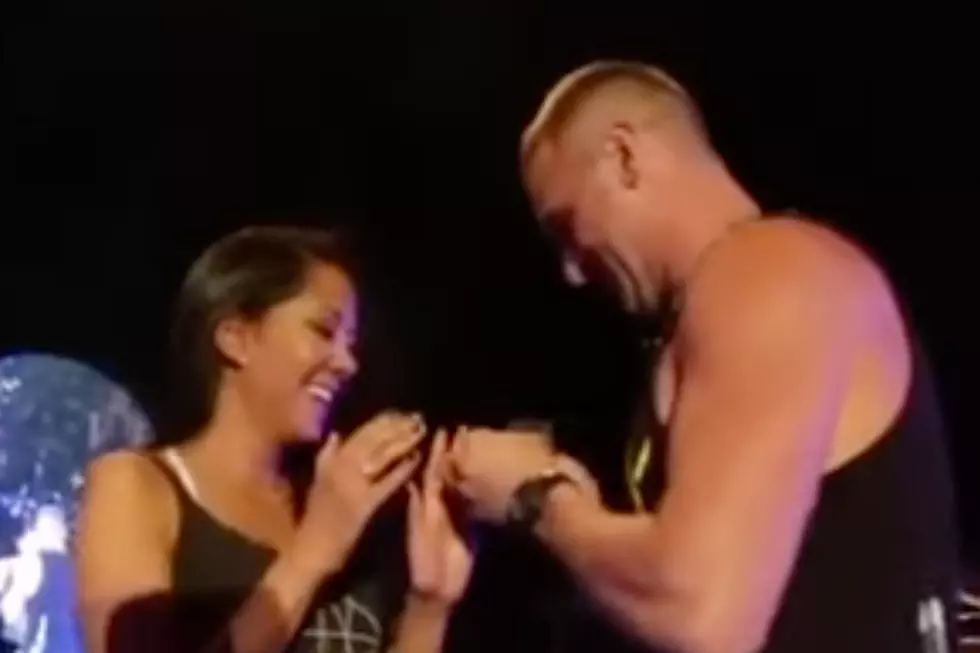
‘Louder Than Hell’ – Read an Exclusive Excerpt From the Book’s Unpublished ‘Grunge’ Chapter
In May of this year, authors Jon Wiederhorn and Katherine Turman released the impressively comprehensive book 'Louder Than Hell: The Definitive Oral History of Metal.' The critically acclaimed tome, available for sale at Amazon, tells the story of heavy metal through quotes from the artists themselves.
The book, reviewed very favorably by Loudwire here, features interviews with members of Black Sabbath, Metallica, Pantera, Slayer and countless other bands.
Moreover, the book also boasts an introduction from Anthrax guitarist Scott Ian and an afterword by legendary Judas Priest frontman Rob Halford.
Despite its comprehensive content, there was one chapter the authors decided not to include in 'Louder Than Hell' -- and that unpublished chapter covered the world of grunge, a hard rock genre that has been both embraced and rejected by fans of heavy metal.
Authors Wiederhorn and Turman have graciously allowed Loudwire to post an excerpt from the book's unpublished grunge chapter. The passage below offers insight into the origins of both Pearl Jam and Nirvana, as told by the band members themselves.
Without further ado, here's a never-before-published excerpt from the missing 'Grunge' chapter of the book 'Louder Than Hell: The Definitive Oral History of Metal.'
From the start, Pearl Jam were the epitome of the “misunderstood” Seattle rock band, perhaps in part because of the members’ past experiences with the media. Guitarist Stone Gossard and bassist Jeff Ament rose from the ashes of Mother Love Bone, and fielded an endless barrage of sensationalism after Andrew Wood’s death. But it was charismatic, then-unknown, vocalist Eddie Vedder who became the new media darling and the band’s reluctant focal point.
EDDIE VEDDER (Pearl Jam): Jack [Irons, ex-drummer of the Red Hot Chili Peppers, who I met backstage at a Joe Strummer show in 1989] sent me three of [Stone Gossard's and Jeff Ament's] songs. I went surfing the next day and the whole time I was out there, I had this stuff going through my head, the music and the words going on at the same time. I put them down on tape and sent them off. I didn't really know what they wanted. The music just felt really open to me. Afterwards, I thought, “Wow, the music is really good, maybe I should have paid more attention. Maybe I should have written it down. Maybe I should have really listened to it before I sent it off.”
STONE GOSSARD (Green River, Mother Love Bone, Pearl Jam): We were blown [away by Eddie]. We had a few other tapes, but it was always people singing Mother Love Bone songs or trying to be like Andy [Wood]. When we heard Eddie's tape, it was like, here's a guy who didn't really know anything about Mother Love Bone. He didn't have any preconceived notions. He just related to these non-vocal demos that we sent him.
EDDIE VEDDER (1991 interview): It was three songs, like rambling weird stuff. One of them is called “Alive,” and one of them is called “Once,” and then one was called “Footsteps.” It was the same music, but different words. The whole thing was a three-song mini-opera. “Alive” was the first act, and that has incest and violence. Actually the violent one was "Once;” he goes out and kills people. Then “Times of Trouble,” or my version, “Footsteps,” sounded like sitting in a jail cell. It's about a guy who was tortured as a child, which is the reason behind him turning into a mass murderer.
JEFF AMENT (Green River, Mother Love Bone, Pearl Jam): We were looking to get a band together right away [after Mother Love Bone]. We thought it was going to take a lot longer than it did. We had a schedule of when we wanted to make a record. It was only six or eight weeks after we'd been a band. It was exactly what we didn't do with Mother Love Bone, and that was to actually get some of the spontaneity and freshness of the songs, to get really close to them when they were written. I wanted to get back to making a record that was a little bit more raw, with a little more emphasis on getting the intensity. I think we did that. I think it [Ten] properly captured where we were as a band.
While Pearl Jam came together quickly from years of individual toil and experience, Nirvana evolved more organically, the result of friends drinking and jamming until magic struck.
KURT COBAIN (Nirvana): I think [my first concert] was Sammy Hagar in '79 or '80. I was aware of punk in like ‘78-9 through reading Creem magazine, but I was only like 12 at the time.
KRIST NOVOSELIC (Nirvana): At first I kind of faked [bass]. I started listening to other bass players to find out what they were doing. My first concert was Iron Maiden. I was so stoned, it was a riot. I was into the Scorpions two years before anyone else was. I was into Ozzy before anybody else was.
DAVE GROHL: (Nirvana, Foo Fighters, Them Crooked Vultures): I went to visit my cousin Tracy, who was two or three years older than me. We arrived, and my aunt Sherry says, “Tracy, they're here. Come downstairs.” I hear this “chink, chink, chink,” coming down the stairs. At the bottom of the stairs I see she has chains on and bondage pants and combat boots. I was like, “Oh, she's punk.” I was totally converted. I owe it all to Tracy Bradford. I dropped out of high school at the age of 17 to tour with a band, Scream.
KURT COBAIN: I was supposed to go to art school, but I decided to drop out of high school the last month, because the reality of it was too much for me to handle, because I knew I didn't want to do art, I wanted to be in a band.
KRIST NOVOSELIC: [Kurt] hung around my brother. He was a cool guy, and he gave me [the Fecal Matter demo] that him and Dale from the Melvins made of these songs that Kurt wrote. I listened to it and got really excited, like, “Whoa, this is really cool. Hey man, let's start a band.” He played guitar, so he had a guitar and amp, but I borrowed a bass and bass amp. We found a drummer with this junky drum set and we started hammering out some stuff. In two weeks we had a bunch of songs, like “Floyd the Barber” and the first song I heard on that tape was “Spank Through.”
KURT COBAIN: We sound like the Bay City Rollers after an assault by Black Sabbath.
KRIST NOVOSELIC: I don't even know if Kurt knew what he was doing. It was just like, “Let's have a band,” and we always stuck with it through whatever obstacles came up, even jobs. We drove up to Olympia from Aberdeen in this Volkswagen Beetle. We took the back seat out and just stuffed everything in there, and Kurt and a gallon of wine. Then we started playing in Tacoma and then in Seattle.
KURT COBAIN (Nirvana): I was so nervous [at our first show] I vomited. I don't think the wine I drank helped. It was red wine, like blood. They thought I was Kiss.
DAVE GROHL (Nirvana, Foo Fighters): I'll never forget them telling me this story about being on tour before recording Bleach, and they had one tape in the van. One side was Celtic Frost and the other side was the Smithereens, and they'd f---in' listen to it over and over. Listen to "Big Cheese," man, it sounds exactly like that.
Nirvana’s first recording was a seven-inch of the Shocking Blue song “Love Buzz” for the Sub Pop Singles Club, produced by Jack Endino at his studio Reciprocal Recording. Soon after, Nirvana returned to Endino’s place to record their debut album Bleach, a torrential punk-metal hybrid that owed as much to Black Sabbath as Black Flag.
JACK ENDINO: (Skin Yard, producer): The total recording and mixing time for Bleach was in the neighborhood of 30 hours. It doesn't get any more together than that.
DAVE GROHL: [Kurt and Krist] told me about their second guitarist Jason Everman, who was in the band for a short period around the Bleach album. He actually paid [$606.26] for [the recording of] Bleach, then they kicked him out. F---ers. He was really into King Diamond, and they would make so much fun of him for it, and he would always say, "Don't dis the King, man."
JASON EVERMAN (ex-Nirvana, ex-Soundgarden): I left Nirvana [after] I realized I wasn't going to be allowed to participate in songwriting [or be] anything more than a side guy. It wasn't my band. I'm the kind of guy where, one or two songs per record, a riff here or there, and I would have been sated. [When I] got back to Seattle following a U.S. tour, honestly I felt kind of relieved, knowing I was out of the band. It got stressful towards the end [of the Tad tour].
After it was released in June 1989, Bleach established Nirvana as one of the favorites of the Seattle scene. Songs like "About a Girl" and "School" proved that Cobain had a gift for writing both simple, strummy passages and blazing fuzz-filled riffs, often within the same song. Coupled with cryptic lyrics that were equal parts stream of consciousness psychobabble and Dada-esque lunacy, Nirvana appealed equally to blue-collar rockers and college-educated fans.
KURT COBAIN (1991 interview): I've been writing since I was in high school. Poetry, many booklets filled full of stupid ideas and philosophies, so I take a lot of lines of those and put them in songs. I like [William] Burroughs the best and I'm into [Charles] Bukowski, [Samuel] Beckett ... anything with a B. I like denseness. I think what most people can get out of our lyrics is that I'm equally as frustrated and confused as anyone else, so it helps break down the rock star barriers.
Our thanks to authors Jon Wiederhorn and Katherine Turman for allowing Loudwire to post this exclusive excerpt from the unpublished 'Grunge' chapter of 'Louder Than Hell: The Definitive Oral History of Metal.' Pick up the book in hardcover or Kindle edition at Amazon. You can also win a copy of the book signed by Wiederhorn and Turman by entering our Twitter contest below:
More From Loudwire
